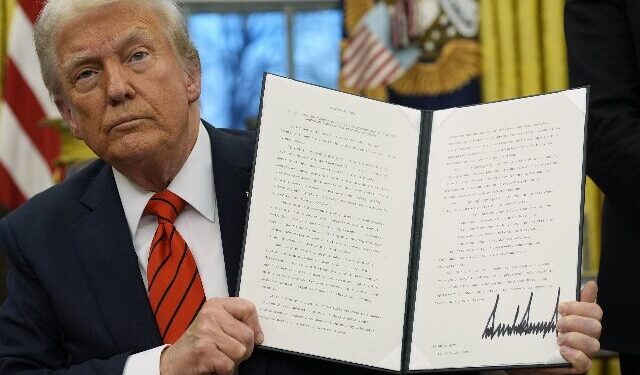Washington, D.C. – March 1, 2025 – In a historic move, President Donald Trump signed an executive order on Saturday, officially designating English as the national language of the United States. The announcement marks the first time in nearly 250 years that the country has adopted an official language.
The executive order emphasizes that a nationally designated language is essential for a “unified and cohesive society.” It highlights the role of English in fostering economic opportunities, community engagement, and participation in American traditions.
“A policy of encouraging the learning and adoption of our national language will make the United States a shared home and empower new citizens to achieve the American dream,” the order states.
Trump’s administration argues that having English as the official language will streamline communication, reinforce shared national values, and promote efficiency in government operations.
While the order establishes English as the official language, it does not mandate the elimination of multilingual services. Government agencies may continue to provide information and services in other languages at their discretion.
“Agency heads are not required to amend, remove, or otherwise stop production of documents, products, or other services prepared or offered in languages other than English,” the order clarifies.
Before this decision, the U.S. had no designated official language, despite English being the dominant language in government, education, and business. In 2000, President Bill Clinton mandated that federally funded agencies provide language assistance to non-English speakers. Trump’s executive order reverses that directive, signaling a shift in language policy.
The decision has sparked nationwide debate. Supporters believe the move will promote national unity and simplify governmental procedures. Critics, however, argue that it could marginalize non-English-speaking communities and limit their access to essential services.
“This order recognizes and celebrates the long tradition of multilingual American citizens who have learned English and passed it to their children for generations to come,” the administration stated.
As the implementation of this policy unfolds, its impact on diverse communities and government operations remains to be seen.




















